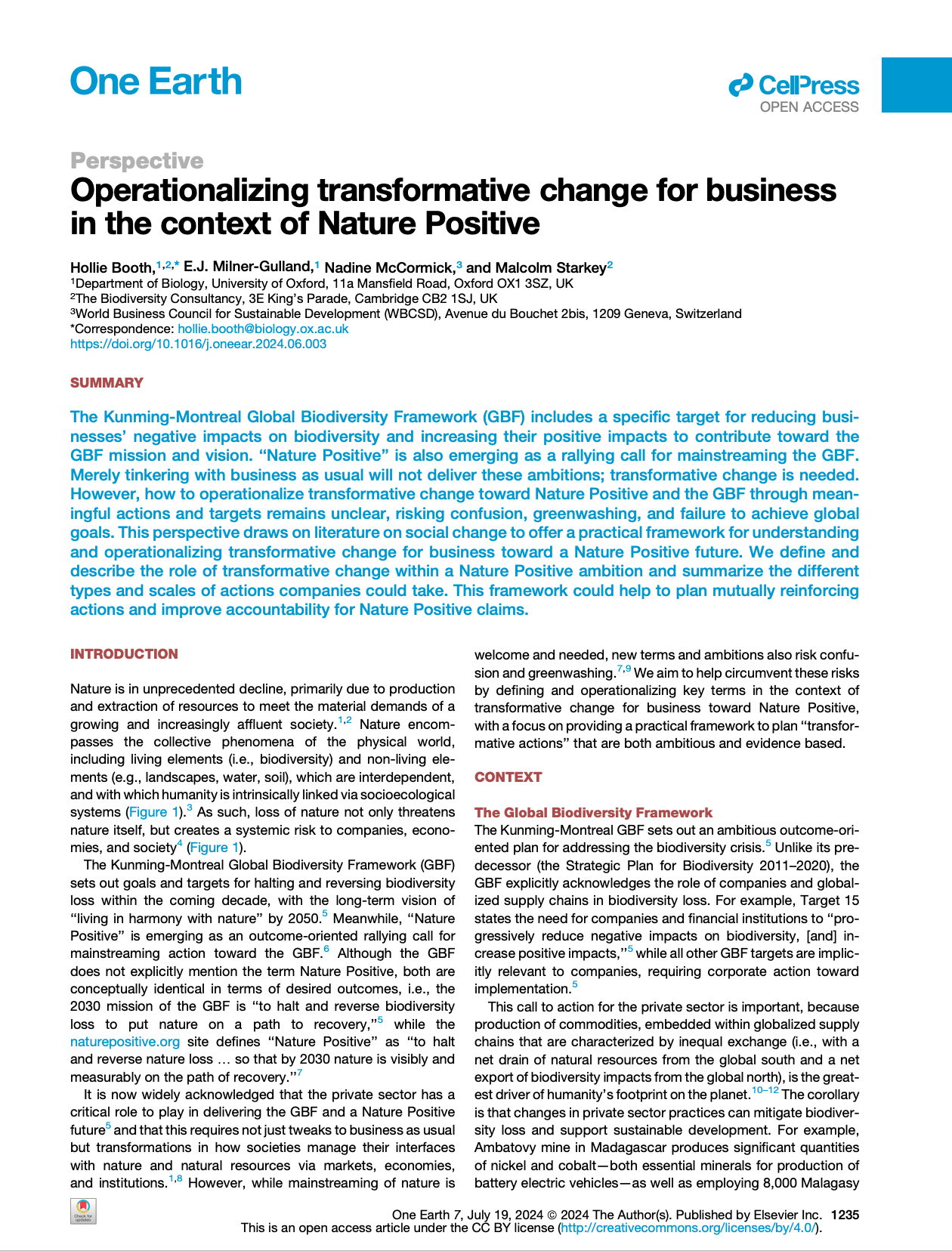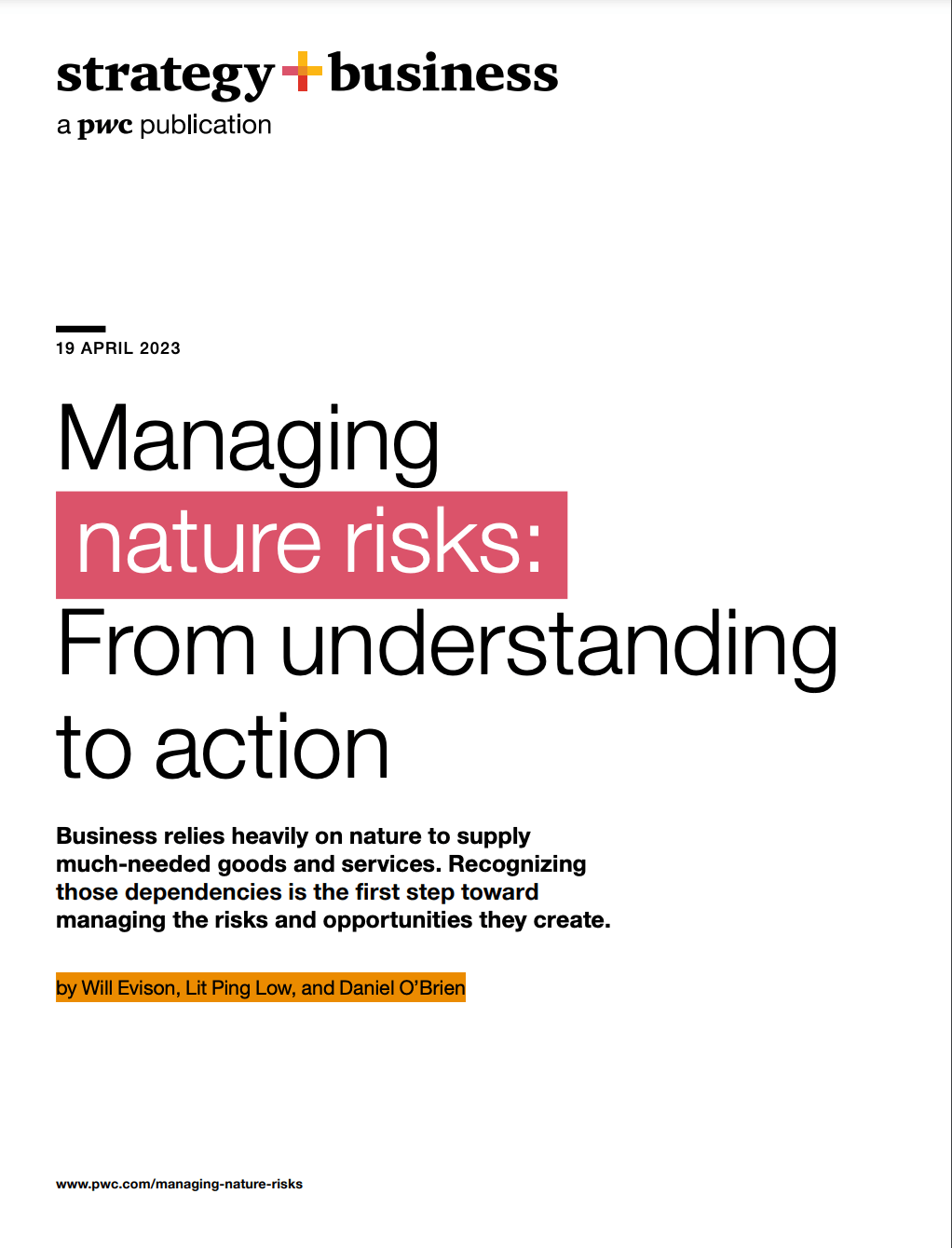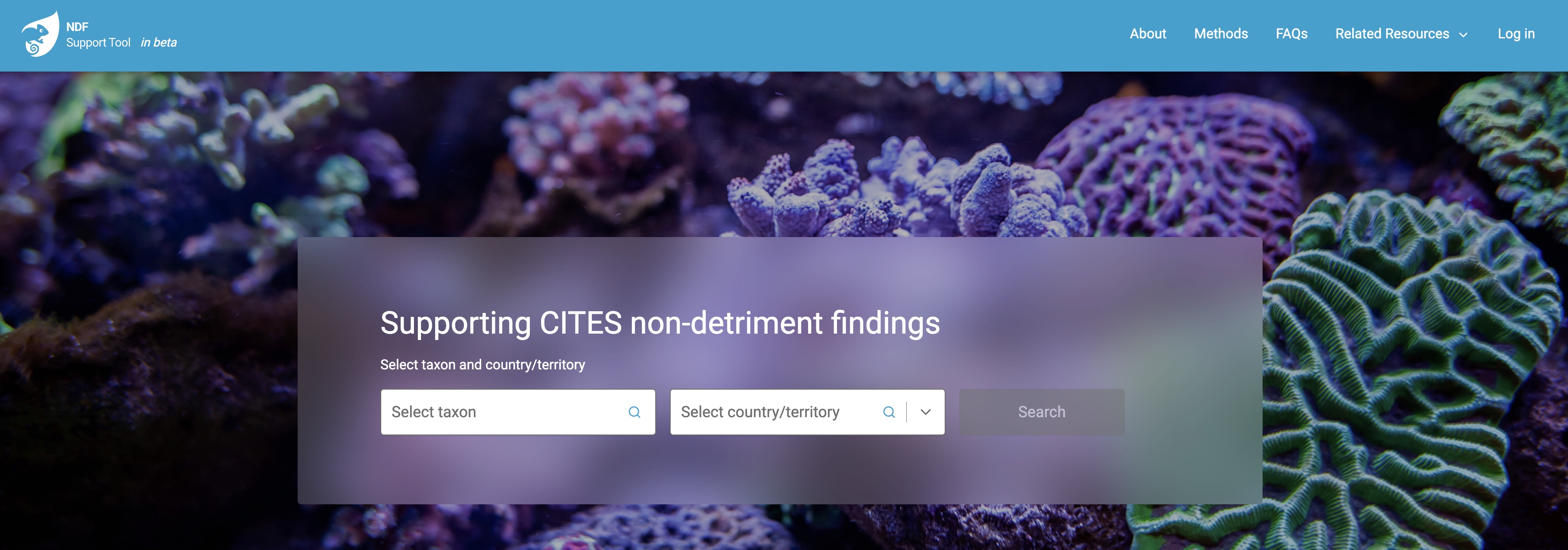NDF Support Tool
Detalles
NDF Support Tool is an online tool launched by the United Nations Environment Programme's World Conservation Monitoring Centre (UNEP-WCMC) and the International Union for Conservation of Nature (IUCN) to help countries assess the sustainability of trade in internationally listed wild plants and animals. |
Recursos relacionados

Operationalizing transformative change for business in the context of Nature Positive
The article addresses how companies can contribute to the mission of the Kunming-Montreal Global Biodiversity Framework (MGB) to halt and…

Nature Positive Travel & Tourism
Nature Positive Travel & Tourism explora cómo este sector puede proteger la naturaleza al tiempo que evita un daño mayor…

Managing Nature risks: from understanding to action
El análisis de PwC muestra que más de la mitad (55 %) del producto interior bruto (PIB) mundial depende moderada…


